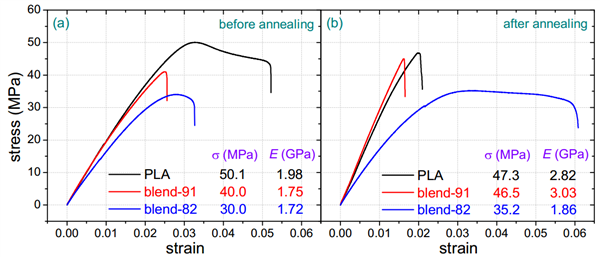- 吳德峰 教授
- 揚州大學(xué)化學(xué)化工學(xué)院
- 網(wǎng)址: wudefeng.polymer.cn 訪問量:1214575
- 通信地址:揚州大學(xué)化學(xué)化工學(xué)院810信箱
- 郵編:225002
- 電話:0514-87975230
- 傳真:0514-87975244
- Email:dfwu@yzu.edu.cn
關(guān)鍵字:poly(L-lactic acid); poly(L-malic acid); mechanical properties; degradation; phase behavior.
論文來源:期刊
具體來源:Journal of Polymers and the Environment
發(fā)表時間:2020年
Journal of Polymers and the Environment, 2020, 28(3), 884-891.
ABSTRACT:

Poly(L-malic acid) (PLMA) oligomer was used as the minor phase to prepare the blends with poly(L-lactic acid) (PLLA), with the objective to develop fully biomass-derived and biodegradable aliphatic polyester blends with balanced overall performance. The phase behavior and viscoelastic responses reveals that the two phases are thermodynamically immiscible, showing high level of interfacial tension in their blends. Poor phase adhesion and lower mass weight of PLMA results in an evident decrease of mechanical properties of the blends as compared to PLLA. The dilute effect caused by the addition of PLMA, however, promotes the cold crystallization of PLLA. Therefore, the strength and modulus losses of the blends can be remedied well by the annealing in solid state. Besides, the degradation rates can also be regulated by the presence of hydrophilic PLMA phase. In this case, a fully green PLLA/PLMA blend with balanced properties is fabricated. This work also provides useful information developing new applications of PLMA.
PDF DOWNLOAD:
https://link.springer.com/article/10.1007%2Fs10924-020-01652-8